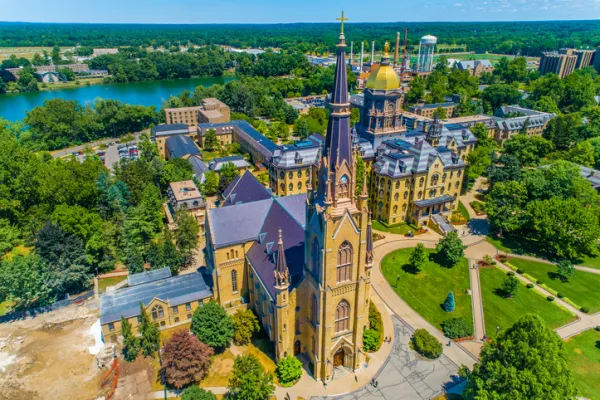Savvy manager selection and strategic shifts in asset allocation led Harvard's $53.2 billion endowment to generate a 9.6 percent return in fiscal year 2024.
In his annual letter to investors and the Harvard community, Harvard Management Company’s CEO N.P. “Narv” Narvekar noted that strong manager selection was key in driving returns, particularly in the public equity and hedge fund portfolios, which outperformed their benchmarks.
Harvard Management also has made significant changes to the endowment's asset allocation over the past seven years. One major move was reducing its exposure to real estate and natural resources, from 25 percent in fiscal year 2018 to just six percent now. This allowed HMC to increase the allocation to private equity (currently 39 percent of the portfolio, up from 16 percent as of July 1, 2017).
Hedge funds have taken on a bigger role over the years and now represent 32 percent of assets. Michael Markov, founder of Markov Processes International, told Institutional Investor in an email that Harvard’s increased hedge fund exposure likely played a pivotal role in their strong returns. “From an asset allocation perspective, adding to hedge funds since FY2023 concluded would also have provided a positive impact,” Markov said.
Narvekar stressed that, despite having “less equity exposure than most hedge fund indices,” Harvard’s hedge fund portfolio “still outperformed during a strong year for equities."
Overall, equities, particularly large-cap technology stocks, may have helped boost returns. Markov speculated that Harvard may have benefitted from "overweighting IT and the Mag 7 relative to the broad S&P 500." The IT sector returned 41.8 percent in fiscal year 2024.
Currently, the Harvard endowment has 39 percent allocated to private equity, 32 percent to hedge funds, 14 percent in public equities, five percent each to real estate and bonds, and three percent each to other real assets and cash.
But while Narvekar explained that private equity generally outperforms public markets, private equity returns lagged stocks for the second consecutive year in fiscal year 2024. And Harvard’s private equity portfolio, which leaned heavily toward venture capital, underperformed.
Venture capital performed poorly in fiscal year 2024, while private equity was "modestly positive," according to MPI.
“Their higher-than-Ivy average exposure to private equity has behaved as if it is weighted much more towards venture capital (growth) than PE (buyouts),” Markov added.
Currently, Harvard’s return ranks roughly in the middle of the Ivy League and elite schools. While not reaching the heights that Columbia or Brown reached (11.5 percent and 11.3 percent, respectively), Harvard did outperform the endowments of MIT (8.9 percent), Cornell (8.7 percent), Dartmouth (8.4 percent), and the University of Pennsylvania (7.1 percent). Yale and Princeton have not yet published their fiscal year 2024 results as of October 18.
“The work HMC has undertaken to reposition the endowment for long-term success is clearly visible and the risk-adjusted returns to date show we are on the right track,” said Narvekar.
Markov agrees, viewing fiscal year 2024 "as a win for Harvard, and for Narvekar’s legacy of reconfiguring HMC’s behemoth portfolio over his 7-year tenure.
“Harvard seems to have overcome the drag of their significant private markets exposure to outperform our estimates—based on our models of their portfolio behavior through FY2023—by a surprising margin.”







